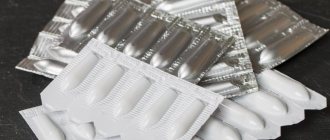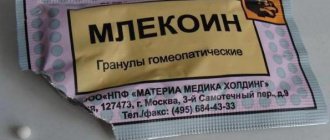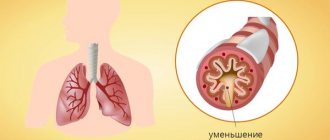Almost every person has taken activated charcoal at least once. Hard tablets with a strange taste, and even black, and to have an effect you need to drink about ten of them at once. But today we don’t have to deal with such inconveniences; there are many other medications that are much more effective and pleasant to use. One of them is Polysorb, a safe and effective enterosorbent.
How does the product work and when can it be taken? Is Polysorb dangerous when breastfeeding?
How the drug works
Polysorb is a silicon compound crushed into a homogeneous dispersed mass. The medicine is made from an inorganic component, which adds special properties to it: it is not absorbed from the gastrointestinal tract, but only adsorbs various chemical compounds onto itself.
Polysorb is capable of:
- Remove both harmful substances that are formed in the body itself, and those that come from outside. In particular, it is used to remove bacteria and other pathogenic microorganisms, as well as their toxins.
- Easily copes with medications and even toxic substances (including salts of heavy metals), radionuclides and many others. It helps the body remove excess cholesterol, bilirubin, fats, etc.
So, polysorb only adsorbs compounds onto itself, while remaining unchanged in its original form. Figuratively speaking, it passes through the intestines and collects everything dangerous, removing it unnoticed by the body.
Watch the video about the action of the drug Polysorb:
Advantages over analogues
Polysorb has proven its effectiveness for a long time. Main advantages over other similar drugs:
- It begins to act literally immediately after entering the gastrointestinal tract. Adsorbed toxins are detected on it within 3 to 5 minutes after consumption.
- A number of clinical studies show a relatively rapid disappearance of symptoms of poisoning and intoxication when taking this particular enterosorbent. If you compare it with activated carbon, it is more than 100 times more effective. Its sorption area is on average 30 m2/g. And this is one of the highest indicators among similar ones.
- An important advantage of polysorb is that while removing harmful substances, it does not pretend to be beneficial in the body.
- The drug is presented in the form of a powder, which must first be dissolved in water and then drunk. It is much more convenient and enjoyable than taking pills, for example.
- Polysorb is not metabolized, i.e. it does not enter the bloodstream, does not burden the liver, etc.
- The product does not damage the mucous membrane of the gastrointestinal tract. This is very important, since many sorbents literally “scratch” the walls. That is why Polysorb can be prescribed even to infants, the elderly and people with weakened immune systems, as well as during pregnancy and breastfeeding.
Dosage regimen of Polysorb MP for hepatitis B
A nursing mother should drink Polysorb in case of poisoning and other pathological conditions in the form of an aqueous suspension. To prepare it, dilute the required amount of medication in 50-100 ml of water.
When breastfeeding, Polysorb is prescribed to women in a daily dosage of 100-200 mg per 1 kg of weight. The highest daily dose for adults is 0.33 g per kg of body weight, or no more than 20 g per day. The daily dose should be divided into 3-4 times.
When breastfeeding, Polisorb should be taken an hour before meals and other medications. Each time before the next dose, you need to prepare a new suspension.
We recommend reading: Diagnosis of gallstone disease: an overview of all methods
The duration of therapy during breastfeeding depends on the severity of the clinical picture and diagnosis:
- For acute intestinal infections, the course of treatment lasts from 3 to 5 days.
- In case of chronic allergies or intoxication, Polysorb MP for hepatitis should be taken for 7-14 days.
After consultation with a doctor, you can drink Polysorb MP while breastfeeding again after 14-21 days.
To prevent Polysorb MP from losing its therapeutic effect, the powder must be stored at temperatures up to 25 degrees for 5 years from the date of release. After the package is opened, the medicine should be kept in a tightly closed container. The aqueous suspension can be stored for a maximum of 2 days.
When should you take the remedy?
The situations for using polysorb are quite numerous due to its harmlessness and effectiveness.
If it is necessary to take enterosorben, the mother does not even have to worry about whether polysorb can be taken while breastfeeding. With confidence in its safety for women and children, it is allowed to be taken by doctors.
It is most often used in the following cases:
- For the treatment of diarrhea of any origin. Most often these are ordinary toxic infections (household poisoning), but it is also effective for bacterial, viral and other intestinal pathologies with loose stools. Polysorb will also help in the complex treatment of intestinal and vaginal flora disorders.
- Polysorb is used in situations where, against the background of some infectious process, intoxication syndrome is pronounced (fever, weakness, lethargy, nausea, sweating, etc.). Such symptoms arise due to the active action of microbial toxins, which this drug can remove from the body. This way, the main treatment will be more effective, and the person will feel much better.
- Polysorb is also used to cleanse the body in case of acute or chronic poisoning of any etiology , ranging from medications, alcohol to salts of heavy metals and other compounds. It can be successfully used, for example, by people in polluted production or living in environmentally unfavorable areas, with a hangover, etc.
- Actively copes with allergy symptoms. While taking it, rashes and other symptoms go away much faster.
- It is also used for changes in the function of the kidneys, liver, lungs, and skin. After all, it is through them that harmful metabolic products are released, and if their work is disrupted, intoxication of the body begins. It is noteworthy that due to the fact that polysorb is not absorbed in the intestines, it does not create additional stress on these organs.
- It is used for toxicosis in pregnant women to reduce the manifestation of clinical symptoms.
We recommend reading the article on the treatment of poisoning during breastfeeding. From it you will learn about the causes and signs of food poisoning, treatment of acute poisoning in nursing women, and features of breastfeeding.
How to drink Polysorb while breastfeeding
Polysorb should be taken only in solution form. To do this, dissolve the required dose of the drug in half or a quarter glass of clean water. It is advisable to prepare a new portion before each dose of the medicine. The entire daily dose must be drunk 3-4 times. For adult women after childbirth, the maximum dose is 0.33 g/kg body weight.
On average, for a weight of 40 kg or more, 1 - 2 teaspoons of medicine should be used per dose.
The duration of therapy should not exceed two weeks. In case of poisoning - on average 3 - 5 days, in case of allergic reactions - up to a week. In each specific case, only a specialist can indicate the safest and most effective dosage regimens.
Instructions for use
Polysorb is used in the form of a suspension. To prepare it you need:
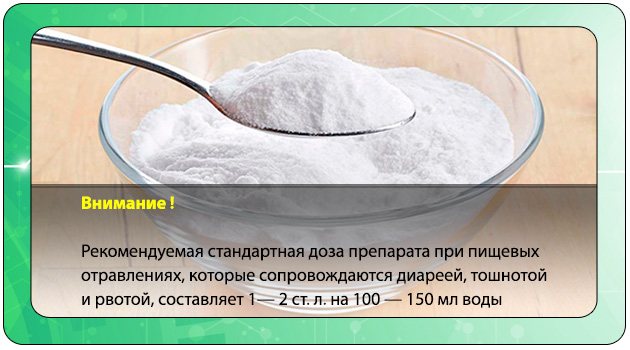
- dilute the required amount of powder in water;
- mix thoroughly until a homogeneous mass is obtained;
- drink 1 hour before your planned meal.
It is recommended to dilute the prepared suspension before each use.
Dosage
Must be taken 3 times a day. The maximum daily amount during breastfeeding is 0.3 g/kg. On average, up to 0.12 g/kg is allowed per day. The exact dosage is determined depending on the type of pathology. With hepatitis B against the background:
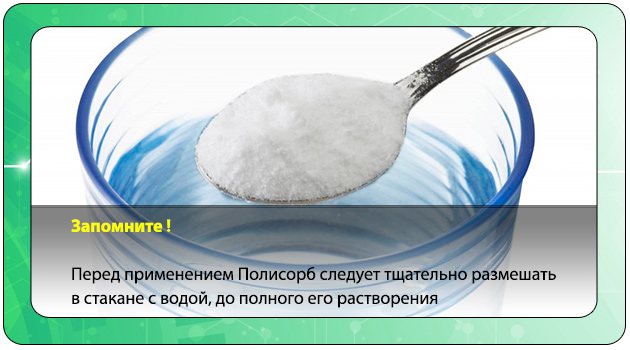
- Poisoning of various origins: it is recommended to rinse the stomach with 1% of the prepared suspension. Apply 150 mg/kg body weight. Multiplicity 2 times a day.
- Infections in the gastrointestinal tract: on the first day the drug should be taken every 5 hours. Then in 4 doses with a 60-minute break between meals or taking other medications.
- Food or drug allergies: wash the stomach in the same way. Drink 0.6 g/kg 1 hour before meals. Duration is one week.
Polysorb is included in the complex treatment of urticaria, exacerbations of bronchial asthma, and seasonal hay fever.
The drug is also approved for use in children from the first months of life. It is used in the event of diathesis, diarrhea of unknown origin, or rotavirus infection. In this case, the powder is diluted strictly according to the instructions, taking into account body weight.
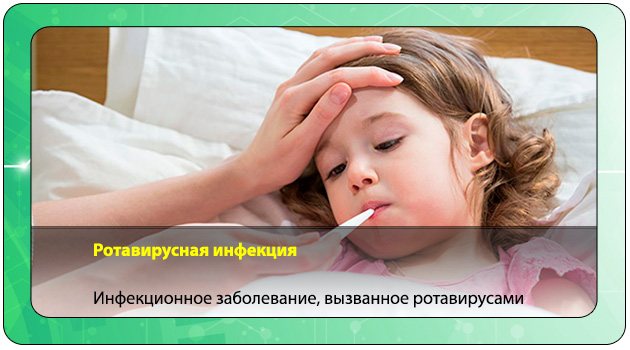
Consequences of taking it: can Polysorb harm a child?
To answer this question, we turn to the kinetics of the sorbent when it enters the body. The entire transformation process consists of the following features:
- in the intestinal lumen, silicon dioxide forms a spatial structure;
- all harmful microbes, toxins, antigens or allergens are adsorbed onto it;
- the active component is not broken down and is excreted strictly unchanged;
- does not enter the blood.
Based on this, it follows that Polysorb does not have a harmful effect on the child during breastfeeding. The drug does not enter the systemic bloodstream, therefore, it does not penetrate into milk. Therefore, the medication is absolutely safe for the baby.

You can use Polysorb for no more than 14 days. In the absence of toxins in the intestines, the medicine begins to absorb useful elements in the form of vitamins and minerals. This can become a condition for the development of hypovitaminosis, general weakness of the mother and malnutrition of the child.
Information you need to know before using the drug
Before using Polysorb while breastfeeding, it is necessary to take into account a number of features. These include:
- the duration of use should not exceed 14 days, unless otherwise prescribed by the doctor;
- alternating Polysorb and other medications;
- use the suspension one hour before meals;
- taking into account the maximum permissible daily dose.

At home it should be used only as a first aid remedy for poisoning or intoxication.
Reviews of women who used the medication during breastfeeding
Inna Doberchak, Kaliningrad, 30 years old
I took Polysorb for food poisoning. I noticed the effect within a day. I diluted the suspension according to the instructions. This did not affect the child's condition in any way.
Valeria Lavrova, Tyumen, 27 years old
I'm allergic. I was worried about feeding the baby, I was afraid that he would have health problems. Therefore, I decided to take Polysorb as a course for one week. She herself felt better, the baby had no reactions.
Alena Gorelova, Moscow, 31 years old
I was poisoned by yogurt while breastfeeding. I immediately took the drug, because I knew that it was absolutely safe for me and my baby. Over the course of the day, all the symptoms subsided, and I again started breastfeeding. There were no reactions from the child.
Contraindications
Like any medical drug, Polysorb has its own limitations in use. Thus, it is not recommended to use it if an allergic reaction or hypersensitivity has ever been noticed to it or similar drugs. In this situation, it is better to use other treatment methods. You should also not take the product in the following cases:
- If intestinal bleeding is suspected or confirmed.
- At the time of exacerbation of peptic ulcer of the stomach and duodenum. Moreover, it should be taken into account that the absence of pain and obvious symptoms of pathology does not yet exclude relapse of the pathology. Therefore, it is better to consult a doctor and undergo the necessary examination.
- If there is a pronounced tendency to constipation due to intestinal atony, it is necessary to use other drugs, since Polysobr can aggravate the situation.
- In the case of an acute abdomen clinic, the main thing is sharp pain.
Side effects
Polysorb, like any drug, can cause unpleasant consequences when used, even if everything is carried out according to the instructions. You can find the following:
- Allergic reactions to the components of the drug.
- Disturbance of the stomach and intestines due to existing chronic pathology. Sometimes constipation occurs.
- If the treatment time is exceeded, blood electrolytes should be monitored, as their imbalance (especially calcium) may occur.
- When taken simultaneously with other drugs, polysorb can adsorb them on itself, thereby neutralizing their effect. Therefore, the drug should be taken only as prescribed by a doctor.
Impact on a child during breastfeeding
During breastfeeding, much of what enters the mother's body passes into breast milk. Therefore, the mother should approach diet and medication thoughtfully. But this applies to everything that can be digested by the digestive system and enters the bloodstream.
Let us repeat once again: polysorb during breastfeeding is indicated as a means of cleansing the mother’s body. It is harmless to mother and child because it does not break down into its components. Accordingly, it does not penetrate into the blood and further into breast milk.
Polysorb will quickly help a nursing mother relieve intoxication, speed up the recovery process and, most importantly, preserve the process of breastfeeding and significantly reduce the period during which harmful agents penetrate into milk.

